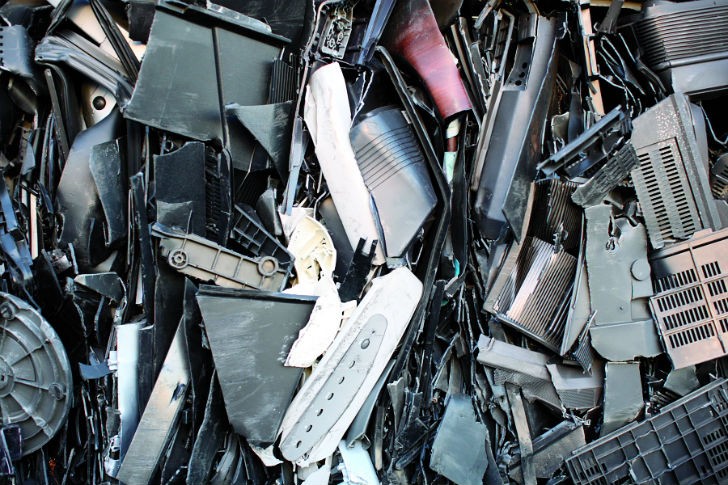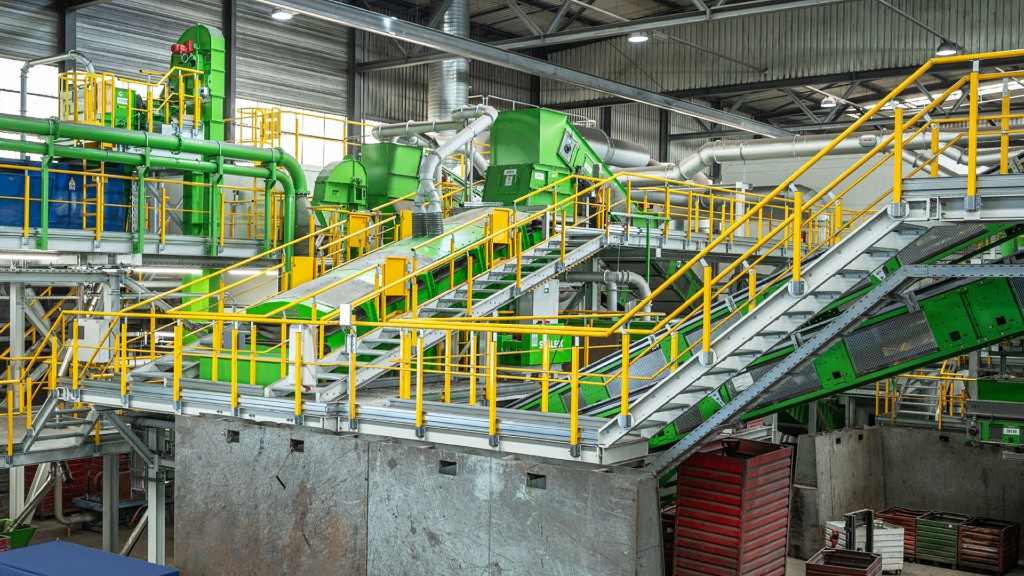Taking Steps toward Tackling the Growing Mountain Of E-Waste in Latin America
Acute concern for health and environment highlighted at UN-backed E-Waste Academy in El Salvado

Acute concerns about e-waste management in the countries of Latin America and developing countries worldwide were highlighted in expert presentations at this year’s E-waste Academy for Managers (EWAM) held this past spring in El Salvador. The event was organized by the UN’s Bonn-based Step (Solving the E-Waste Program) initiative.
Though it receives far less foreign e-waste than Africa and Asia, Latin America and the Caribbean is a significant and growing destination for the industrialized world’s discarded refrigerators, small home appliances, TVs, mobile phones, computers, monitors, e-toys and other products with a battery or electrical cord.
And the region’s fast-growing middle class is buying more new electronic and electrical equipment, due to rising purchasing power and living standard expectations. According to the World Bank, in the past decade the middle class in the region grew 50 percent and represents 32 percent of the population – for the first time in regional history surpassing the number of poor.
Data from Step and UN University, a global think-tank and post-grad teaching organization based in Tokyo, shows per capita e-waste generation in the region’s 30 countries averaged 7.5 kilos in 2013, led by the Bahamas with 19.1 kilos per capita. By 2017, regional per capita generation is expected to rise almost 19 percent to an average of 8.9 kilos.
“There is great opportunity in the e-waste recycling industry - a sector valued at US$ 9.8 billion in 2012 and expected to reach over US$ 40 billion before the end of the decade.” said Kazuhiko Takemoto, director of the United Nations University Institute for the Advanced Study of Sustainability (UNU-IAS). “Waste management is being reinvented as ‘resource management’ because the resources are just too valuable to squander.”
Only about one-third of the countries of South America, Latin America and the Caribbean have regulatory instruments related to e-waste (Brazil has the most, followed by Argentina, Colombia, Peru, Bolivia, Chile, Mexico and Costa Rica) though others are proposing or are actively working on specific legislation.
In 2013 Step released the first-ever global e-waste map showing that by 2017 the annual mountain of e-waste will be 65.4 million tonnes in all, one-third higher than 2012 levels. The global e-waste map is available on Step’s website at www.step-initiative.org.
The Step E-waste Academy
Step is an international initiative comprised of manufacturers, recyclers, academics, governments and other organizations committed to solving the world’s waste electrical and electronic waste problem. By providing a forum for discussion among stakeholders, Step says they are actively sharing information, seeking answers and implementing solutions.
Step E-waste academies are designed for researchers, government decision makers and recyclers as well as others in the broader community. Experts provide experience and knowledge to participants, who in turn share concerns and challenges in their efforts to address e-waste in a developing country.
The 2014 edition of the week-long Step E-Waste Academy, held in April, was the second in a series inaugurated in Ghana in 2012. By sharing insights on “urban mining” and fostering international linkages and collaboration, the academies for e-waste managers, along with complementary events for e-waste-related scientists, are enabling local solutions to a growing global concern.
“What’s called a best-of-two-worlds approach is needed: efficient pre-processing in developing countries and maximized recovery of materials and proper treatment of residual waste in countries with the best technologies for the job, with proceeds shared fairly and equitably,” said Federico Magalini of UNU-IAS SCYCLE, co-ordinator of the E-waste Academy - Managers Edition series.
“To achieve efficient, environmentally sound recycling, we need the means to produce reusable waste fractions in ways appropriate to local circumstances, with the benefit of international strengths and advice, as well as markets for the recycled components,” added Ruediger Kuehr, executive secretary of the Step Initiative and head of UNU-IAS SCYCLE, both based in Bonn, Germany.
Organized by the UN University hosted Step initiative, E-waste Academies for policy makers and small and medium enterprises (EWAM) and scientists (EWAS) aim to foster and sustain multistakeholder partnerships and collaboration, examining the e-waste issue in its entirety, rather than through the lens of a specific discipline.
In addition to expert lectures and presentations on topics ranging from e-waste- related policy and sociology issues to technology and economics, the week long academy program includes group projects and site visits.
Participants at this year’s Academy included representatives from small and medium enterprises in developing countries – mostly recyclers and refurbishers – as well as key policy makers and government officials. The academy in El Salvador was sponsored by EMPA/SECO, NVMP Foundation, US-EPA, Nokia, GeSI, HP, Dell, UNIDO and World Loop.
Participants were from 10 countries of South America, Central America and the Caribbean (Argentina, Brazil, Colombia, the Dominican Republic, El Salvador, Guatemala, Jamaica, Peru, Trinidad and Uruguay), as well as from Africa (Burundi and South Africa). The academy also hosted 14 experts from such institutions as the Massachusetts Institute of Technology and the US Environment Protection Agency, the World Resources Forum in Switzerland, precious metal recycler UMICORE from Belgium, and seven facilitators from IT manufacturers (Dell, Hewlett Packard and Nokia), as well as the UN Industrial Development Organization (UNIDO). For more information visit www.ewasteacademy.org.



